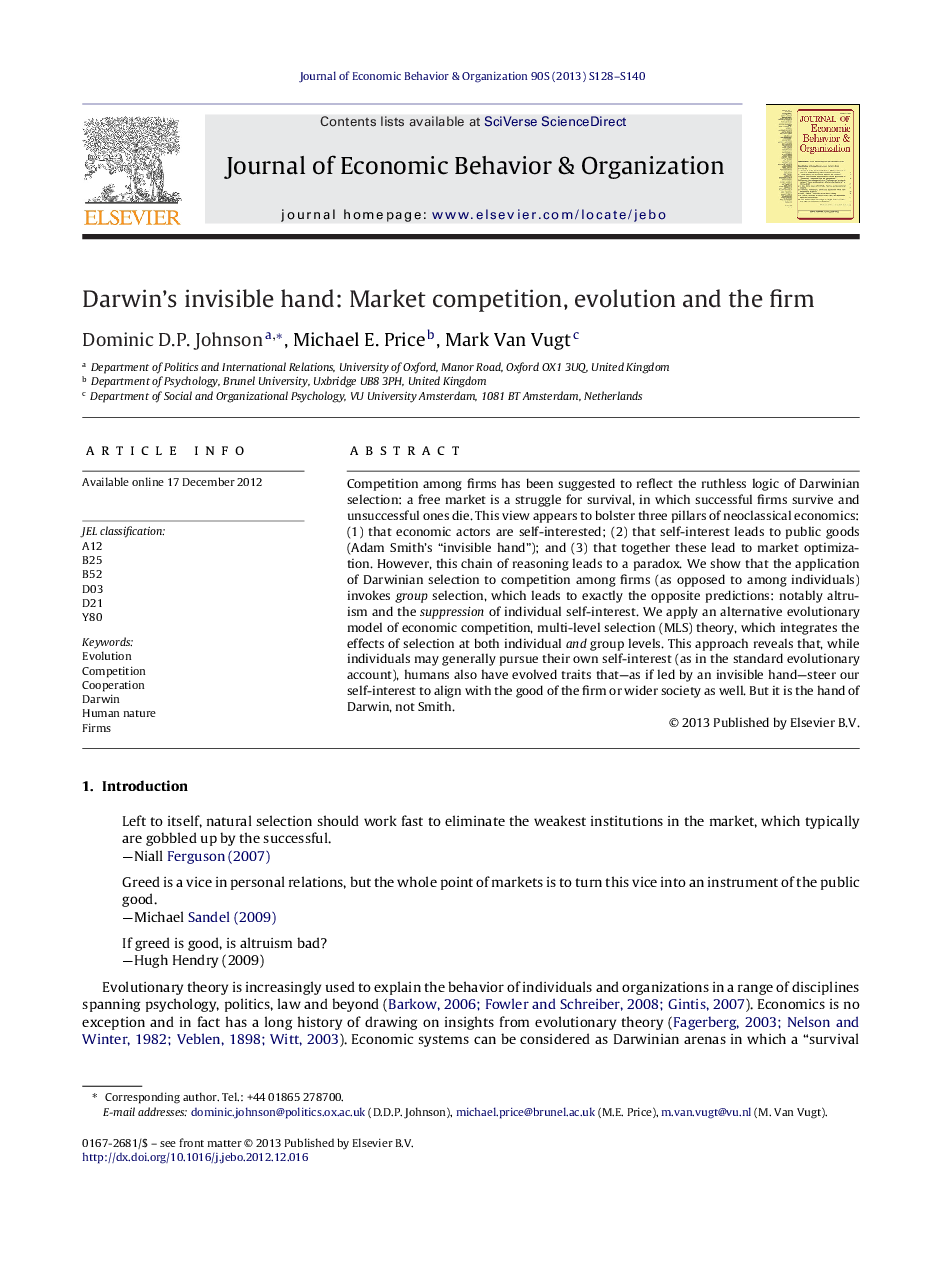| Article ID | Journal | Published Year | Pages | File Type |
|---|---|---|---|---|
| 883637 | Journal of Economic Behavior & Organization | 2013 | 13 Pages |
Competition among firms has been suggested to reflect the ruthless logic of Darwinian selection: a free market is a struggle for survival, in which successful firms survive and unsuccessful ones die. This view appears to bolster three pillars of neoclassical economics: (1) that economic actors are self-interested; (2) that self-interest leads to public goods (Adam Smith's “invisible hand”); and (3) that together these lead to market optimization. However, this chain of reasoning leads to a paradox. We show that the application of Darwinian selection to competition among firms (as opposed to among individuals) invokes group selection, which leads to exactly the opposite predictions: notably altruism and the suppression of individual self-interest. We apply an alternative evolutionary model of economic competition, multi-level selection (MLS) theory, which integrates the effects of selection at both individual and group levels. This approach reveals that, while individuals may generally pursue their own self-interest (as in the standard evolutionary account), humans also have evolved traits that—as if led by an invisible hand—steer our self-interest to align with the good of the firm or wider society as well. But it is the hand of Darwin, not Smith.
